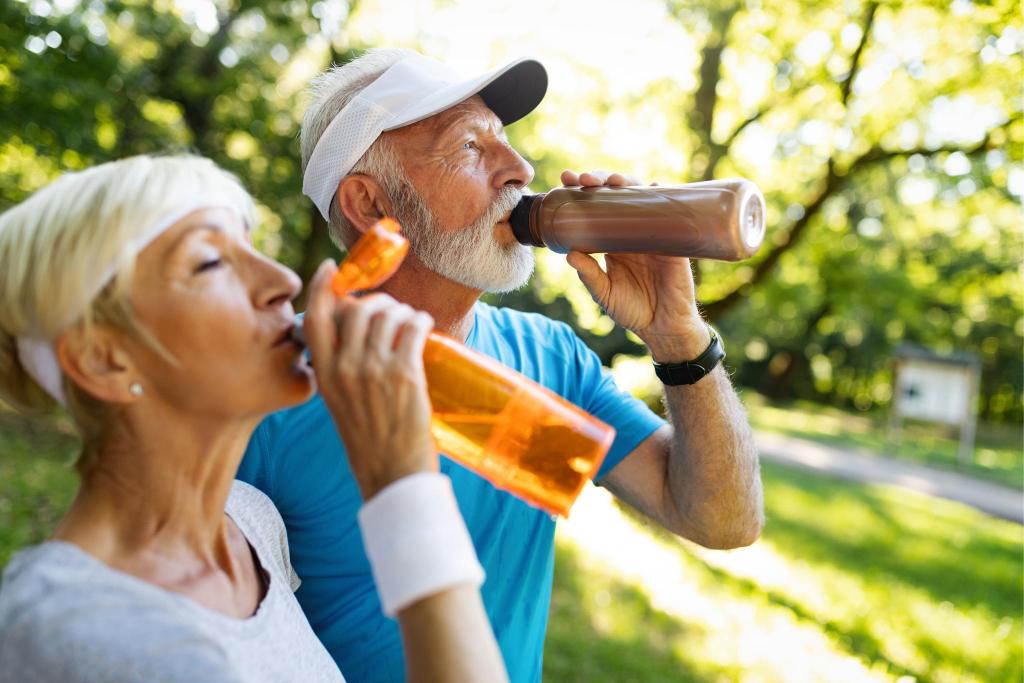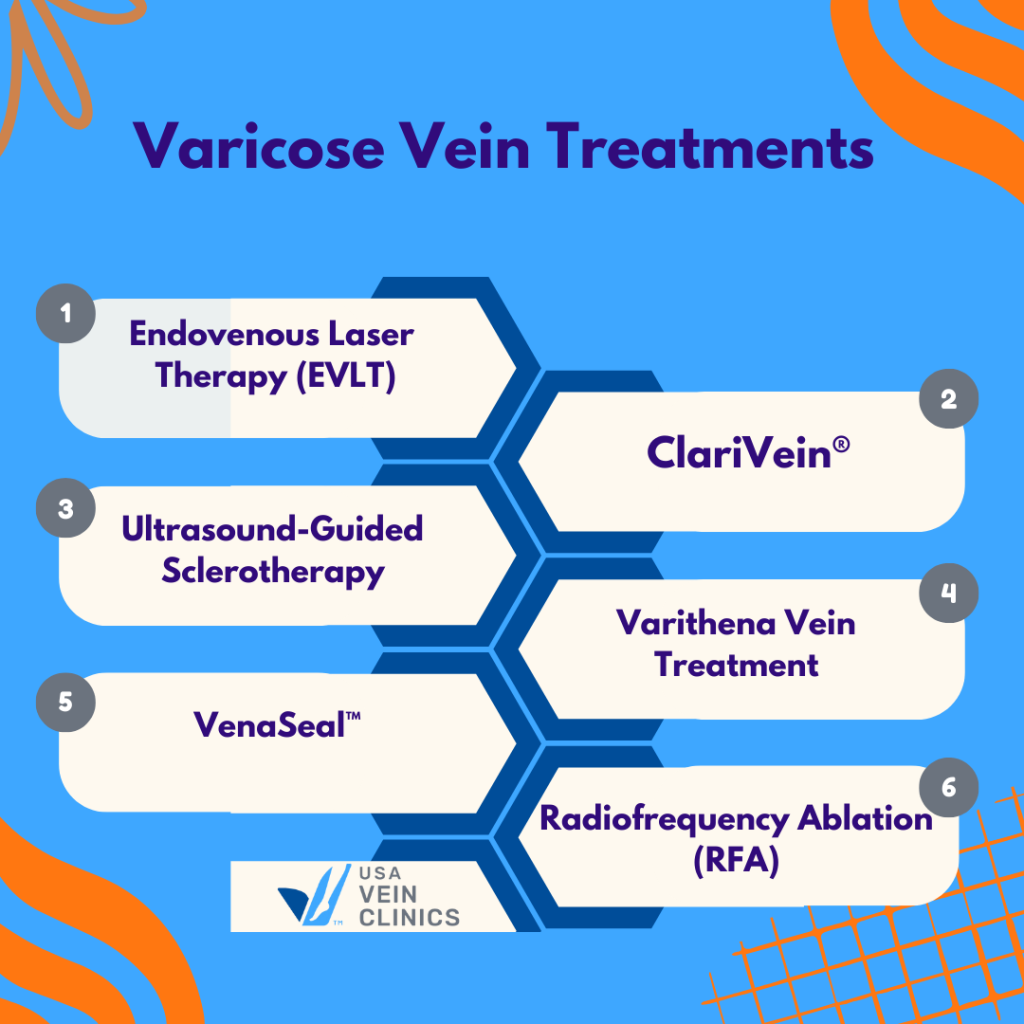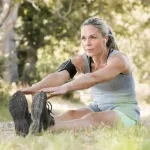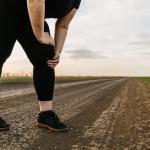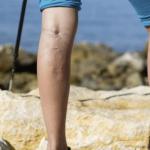
Varicose veins are a common symptom of chronic venous insufficiency. These bluish, bulging, and twisted veins, which often appear on the legs, can cause achiness, fatigue, and swelling. While there is no way to make them magically disappear completely, staying hydrated can be a simple yet effective way to manage your symptoms and promote healthy veins.
MAINTAIN HEALTHY VEINS-SIGN UP FOR OUR NEWSLETTER
Hydration And Varicose Veins
Water is the foundation of a strong, healthy body, supporting all the organ functions as well as veins. Here’s how staying hydrated can improve circulation and reduce varicose vein symptoms:
- Thinner Blood, Easier Flow: With inadequate water intake your blood becomes thicker and more sluggish. This can make it harder for your veins to pump blood back to your heart, leading to increased pressure and varicose vein formation. Drinking enough water helps thin your blood, allowing it to flow more freely, reducing strain on your veins and minimizing the risk of blood clots leading to deep vein thrombosis (DVT).
- Stronger Supporting Muscles: The muscles surrounding your veins play a vital role in circulation. Proper hydration is required to enable these muscles to function optimally. When you’re dehydrated, these muscles can weaken, making it hard to squeeze and push blood back up toward the heart effectively.
However, if you are experiencing poor circulation symptoms despite maintaining a healthy water intake, we suggest consulting a vein specialist. At USA Vein Clinics, our vein specialists address the root cause of varicose veins, providing substantial relief and alleviating symptoms. Our minimally invasive treatments not only improve the blood flow of your dehydrated veins but also enhance the appearance of your legs.
SCHEDULE YOUR VEIN SCREENING TODAY!
How Much Water To Drink For Varicose Veins
According to the U.S. National Academies of Sciences, Engineering, and Medicine, the general recommendation for daily water intake is approximately 3.7 liters for men and 2.7 liters for women, but this can vary from person to person depending on your activity level and the climate. However, it is important to listen to your body and watch for signs of dehydrated veins. Check the color of your urine to gauge the water levels in your body. Clear urine indicates a well-hydrated body. However, many might be curious if water to prevent varicose veins must be at a certain temperature.
Is Drinking Hot Water Good For Varicose Veins?
Soaring temperatures and heat cause veins to expand and widen aggravating varicose veins’ symptoms like swelling and pain. As veins expand, blood circulation slows down, forcing blood to pool. Just like the increasing temperatures on the outside, drinking hot water can have the same effect on the veins, leading to significant discomfort.
On the other hand, while a dip in cool water or a glass of cold water might feel refreshing and cause some blood vessels to constrict temporarily, it does not provide a long-term solution for improving circulation in varicose veins.
The numbing sensation from cold water can temporarily relieve pain, but it doesn’t directly address the underlying inflammation that often contributes to swelling and varicose vein discomfort. While it is important to stay hydrated to manage and prevent varicose veins, minimally invasive vein treatment options are the most effective way to find significant relief.
Water is crucial for keeping your blood flowing smoothly; here’s why:
Blood Composition: Water makes up about 90% of your blood, acting as the essential transport system to carry vital components throughout the body. Proper hydration ensures your blood volume remains adequate, allowing it to flow smoothly and efficiently through your vessels.
Red Blood Cells: Water helps red blood cells carry oxygen throughout your body. When you’re dehydrated, your blood thickens, making it harder for these red blood cells to navigate efficiently. This can hinder the delivery of oxygen to your tissues, impacting your energy levels and overall well-being
Regulation: Water regulates blood pressure. Inadequate water levels in the body decrease blood volume. This decrease triggers the body to try to compensate by constricting blood vessels, which can lead to a rise in blood pressure.
Here are some tips to stay on top of your hydration game:
- Carry a reusable water bottle: Keep it with you throughout the day as a constant reminder to sip.
- Flavor it up: For a refreshing twist, add slices of lemon, cucumber, or berries to your water.
- Track your intake: Many phone apps can help you monitor your daily water intake, sending reminders to stay hydrated.
Vein Health Tips Beyond Hydration
While staying hydrated is a great first step towards maintaining healthy veins, it’s not a standalone solution. Here are some additional vein health tips for managing varicose veins:
-
- Elevate Your Legs: When resting, elevate your legs above your heart to improve circulation.
- Move It or Lose It: Regular exercise, particularly activities that work your leg muscles, can significantly improve blood flow.
- Maintain a Healthy Weight: Excess weight puts extra strain on your veins.
- Mind Your Diet: Limit sodium intake, which can contribute to fluid retention and worsen varicose vein symptoms.
- Get Screened: Any visible signs such as skin color changes, irritation, swelling, or a tingling sensation and pain in the legs can be a strong indication to get a vein health evaluation.
When to See a Vein Specialist
Hydration is just one of the vein health tips to prevent the development of varicose veins. Maintaining a healthy weight, exercising regularly, and elevating your legs when possible are all beneficial for dehydrated veins and overall vein health
If varicose veins are causing pain and discomfort or affecting your quality of life, it’s important to consult a vein specialist and get screened. The vein doctors at USA Vein Clinics can assess your vein health and create a personalized treatment plan from our list of available minimally invasive treatment options to address your specific needs and help you manage your symptoms effectively.
Connect With Vein Specialists Near You
Where do you need a vein specialist?

